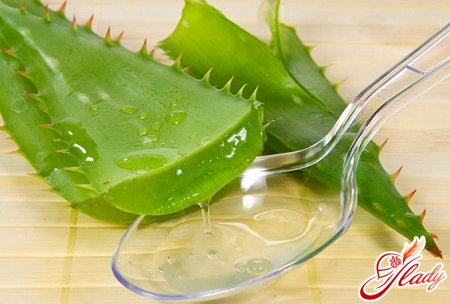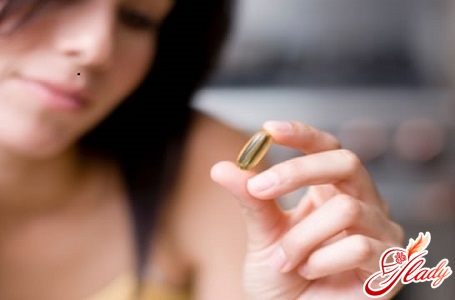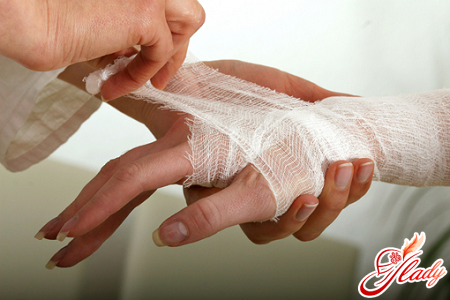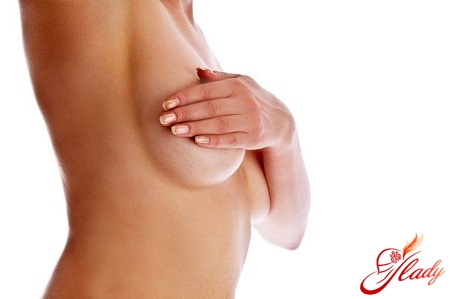
Fibrocystic mastopathy isbenign disease of the mammary glands caused by a hormonal imbalance in the female body. Diffuse fibrocystic mastopathy is also called fibrocystic disease, fibroadenomatosis and simply mastopathy of the mammary glands. Fibrous cystic mastopathy is a widespread disease, but the causes of the disease have not been sufficiently studied. It is known that more than 60% of women suffer from it, especially often fibrocystic mastopathy occurs in patients aged 30-50 years. During menopause, the risk of mastopathy of the mammary glands is significantly reduced.
A little about the causes of the disease
Fibrocystic mastopathy is most oftenmanifests itself in case of imbalance of sex hormones or thyroid hormones, ovarian diseases, liver diseases, endocrine diseases. Mastopathy of the mammary glands is difficult to diagnose due to ambiguous symptoms that vary in severity. Signs of mastopathy of the mammary glands in different women manifest themselves differently: weak or, conversely, very painful sensations associated with the menstrual cycle or independent of it, visible or hidden are possible. Self-examination of the mammary glands is a mandatory preventive measure, but it does not give a 100% guarantee of detecting mastopathy. Fibrocystic mastopathy can only be diagnosed with absolute certainty by a mammologist. Fibrous mastopathy affects the mammary glands. The only biological function of the mammary glands known to science is the secretion of milk and feeding the child. In order for pregnancy to occur, a huge number of hormonal changes occur in the female body in general and the mammary glands in particular during each menstrual cycle. Nature has designed the production of progesterone and estrogen so that a woman can conceive and bear a healthy fetus. These two hormones directly affect the tissues of the mammary glands, stimulating cells to grow and divide. This is good for pregnancy, but what if it does not occur? Unlike the lining of the uterus, the body cannot simply remove excess cells from the body. They remain, so the body initiates the process of apoptosis - programmed decay. The latter does not always go smoothly; inflammation, scarring and, as a result, fibrous mastopathy can occur in the mammary glands.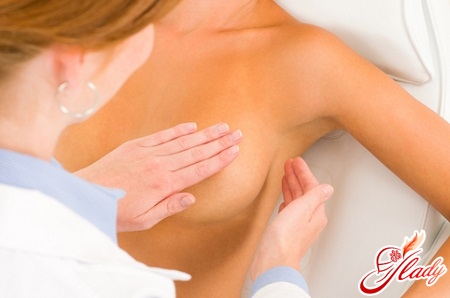
Manifestation and diagnosis of the disease
Cystic mastopathy of the mammary glands manifests itselfin a number of signs. First of all, it is pain in the mammary glands. Cystic mastopathy can manifest itself both during the menstrual cycle and independently of it. In the early stages, the pain may be mild, aching, and disappears before menstruation. Sometimes it can be more intense, pronounced, radiating to the back, armpits, shoulder, neck. The mammary glands swell, become rough, and fluid may be released from the nipples. The second and most obvious sign is nodules, seals in the mammary glands. Cystic mastopathy can be characterized by both multiple small formations (diffuse form) and clearly defined single seals (nodular form). Women who give birth for the first time after 25 years of age, have an irregular sex life, or breastfeed for less than 5 months have a higher risk of developing cystic mastopathy of the mammary glands. The development of cystic mastopathy of the mammary glands is facilitated by conflicts and stress in the family and at work, dissatisfaction with sexual life. These factors lead to a violation of the hormonal balance of the female body, which means they increase the risk of cystic mastopathy. Gynecological and venereal diseases, abortions, liver and biliary tract diseases, breast injuries and heredity also actively influence the occurrence and development of cystic mastopathy. The very first method of diagnosing the disease is an independent primary examination. Every woman should regularly examine and feel her breasts, monitor changes in shape and structure, sensations during palpation. Diffuse fibrocystic mastopathy is well detected in the early stages, therefore, in the interests of women's health, regularly visit a mammologist, at least once a year for a preventive examination. If dangerous symptoms of gynecological and hormonal diseases occur, it is better to make an additional visit. Fibrous mastopathy is also detected by mammography, ultrasound and puncture. The most suitable procedure will be recommended by a doctor. Mammography is an X-ray of the breast. It allows you to detect even the smallest seals that are not palpable. Ultrasound helps track changes in the seals of the mammary glands. Puncture is used for the nodular form of mastopathy, this is the collection of a piece of breast tissue with a special syringe.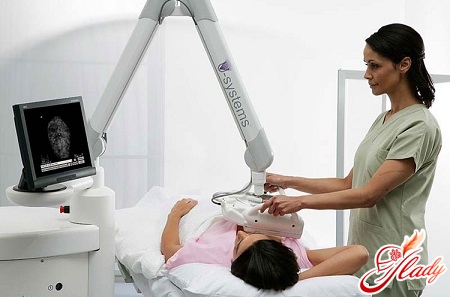
How to cure the disease?
Cystic mastopathy is not life-threatening, it isis not a precancerous disease, but nodular forms of the disease can stimulate breast cancer. In addition, cystic mastopathy significantly reduces the quality of life, so it is necessary to treat it. The disease should not be neglected under any circumstances. Surgical intervention is appropriate only in the presence of a pronounced nodular form of the disease, causing serious suspicion of cancer. In other cases, surgical intervention is not necessary, mastopathy does not require surgical treatment. The disease is caused by hormonal imbalance, so it must be treated. The following drugs help with mastopathy:
- regulating the activity of the thyroid gland,
- progesterone preparations (progestogen),
- oral contraceptives as regulators of the menstrual cycle,
- eliminating the effect of estrogen (phareston, tamoxifen),
- vitamins (A, B, C, E) and means for improving liver function (karsil, essential, legalon),
- homeopathic (edas, mastodinone).
Remember that taking the drug and treatment should bemust be preceded by a full diagnostic examination, identification of a specific hormone causing the disease, and prescription by a doctor. Mastopathy in different women can be caused by a malfunction of the thyroid gland, increased amounts of estrogen, liver or testicular disease, complications during pregnancy and many other reasons. In order for the treatment to be as effective as possible, it is important to identify a specific factor. This can only be done by a certified specialist, mammologist or gynecologist, who will prescribe the optimal drug and treatment. Take the choice of a doctor seriously, because you only have one health. A few more words about dietary supplements (DS), which are not drugs. They can be useful in case of illness, as they contain vitamins and nutrients. However, firstly, not all doctors approve of such drugs, so you should definitely consult a specialist before taking them to avoid troubles (for example, an increase in the dose of the active substance or, conversely, the leveling of the effect of the drug by a dietary supplement). Secondly, there are a huge number of counterfeits on the dietary supplement market, so be careful and cautious.
Non-medicinal products
In addition to the prescription prescribed by the doctor, forTo speed up recovery or prevent illness, general recommendations may be useful. And the first is diet. Women aged 20-50 should avoid smoked and fatty foods, coffee, chocolate, and strong tea. Instead, enrich your diet with fruits and vegetables, especially those containing vitamins A and E to improve liver function and iodine for the thyroid gland. You should quit smoking and minimize alcohol consumption. You should also avoid chips, cola, crackers, and other "junk" food. Without junk food, you will feel and look better, you will feel a surge of energy, and your body will work like a clock. Try your best to avoid sluggish bowel movements, saturate your body with fiber. Simple physical exercises will help you perk up, relieve stress, and healthy food rich in vitamins will give you energy for the whole day. Don't give a bad mood, apathy, or depression a chance. Pay attention to your underwear, namely your bra. If chosen correctly, it not only gives your breasts elasticity and height, but also protects against diseases. The bra must be comfortable, not squeeze or constrict the breasts, and be the right size and shape. Take vitamin complexes, even if you eat right. Vitamins help to balance hormones, normalize metabolism, have an antioxidant effect on the body, stabilize the nervous system, strengthen the immune system, normalize the functions of the adrenal glands, ovaries, and thyroid gland. With mastopathy, vitamins A, E, C, and group B, especially B6, are most needed. If you suffer from swelling of the hands and feet, use homeopathic diuretics, such as herbal tea. It is worth limiting salt intake. As an auxiliary remedy, you can use compresses on the chest from cabbage, honey, beets, carrots, or sea buckthorn oil. They will help relieve pain. Try to fill your day with pleasant moments, spend more time with your family and friends, get out into nature, relax more often. Stress shortens our lives, so you shouldn't give in to it.




